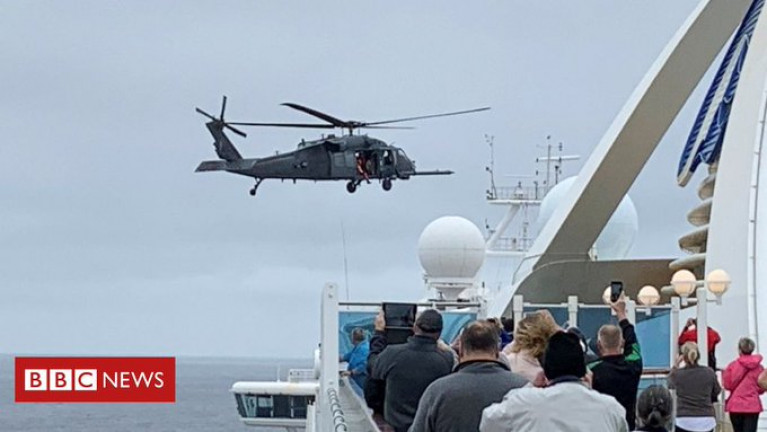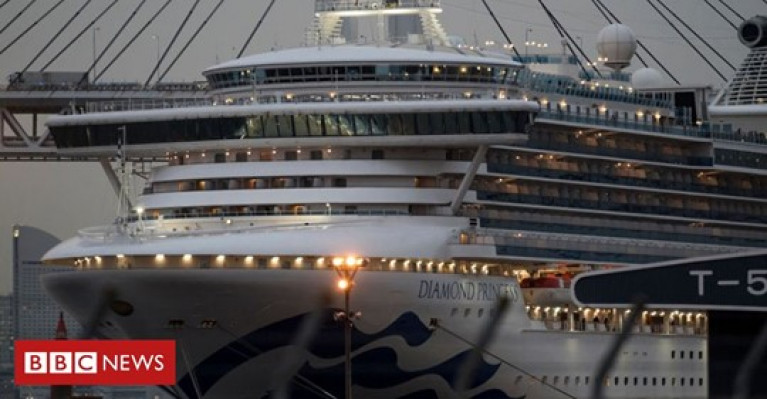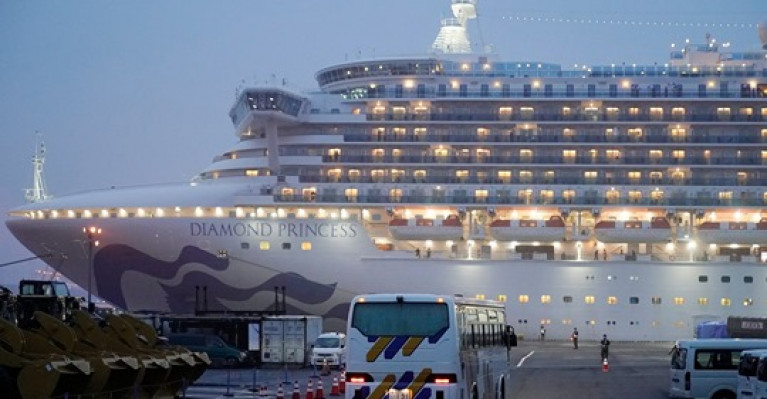Displaying items by tag: Irish Passengers
A cruise ship flagged in the US is understood to be carrying a number of Irish citizens, as well as 21 confirmed coronavirus cases, has been given permission to dock, with its passengers to disembark in Oakland on Monday.
According to RTE News, nineteen crew members and two American passengers are confirmed as having the virus on board the Grand Princess - out of 45 people tested.
(Afloat adds last month a sister of the 'Grand' class cruise ship, Diamond Princess docked in Japan from where British and Irish passengers were evacuated to the UK for quarantine).
The department of Foreign Affairs has said the consulate in San Francisco is in touch with local authorities and monitoring the situation closely.
Authorities have ordered the vessel to remain at sea off the coast of San Francisco, where it was due to dock yesterday following a 14-day trip to Hawaii, after it emerged that a passenger on a previous voyage had contracted the virus and later died.
The vessel will instead go to nearby Oakland on Monday and begin disembarking passengers in need of "acute medical treatment," vessel owner Princess Cruises said in a statement.
The ship's crew will be quarantined and treated aboard the ship, the company added.
For more including details of another cruise ship effected by the outbreak and more click here.
Evacuated British & Irish Coronavirus Cruise Passengers Arrive at UK Quarantine Hospital
Evacuated British and Irish nationals from the coronavirus-hit cruise ship (Diamond Princess) in Japan have arrived at a UK hospital where they will spend the next two weeks in quarantine.
Coaches carrying 30 British and two Irish citizens arrived at the Arrowe Park hospital, Birkenhead on the Wirral Peninsula this (Saturday) evening.
The group had travelled from an airbase in Wiltshire after leaving Tokyo on a flight late on Friday night.
They have so far tested negative for the virus.
Arrowe Park Hospital was previously used to quarantine 83 British nationals who were flown back to the UK from Wuhan.
For more BBC News has a report here
Test for Two Irish Passengers On Cruise Ship Is Positive for Coronavirus
On board the Diamond Princess cruise ship, two Irish passengers have tested positive for coronavirus, according to the Department of Foreign Affairs.
In a statement it said that the two people, who were among six Irish citizens on board the ship, are being treated in hospital in Japan.
The department said that the two people share dual citizenship with another EU member state and are not normally resident in Ireland.
It also said that six Irish citizens were repatriated from Wuhan city in China, three of whom were evacuated on 31 January and the other three on 9 February.
According to the department, nine Irish citizens were passengers on (another) cruise ship the Westerdam, which is currently docked off Sihanoukville, Cambodia.
RTE News has more on the cruiseships berthed in the Asian ports.































































